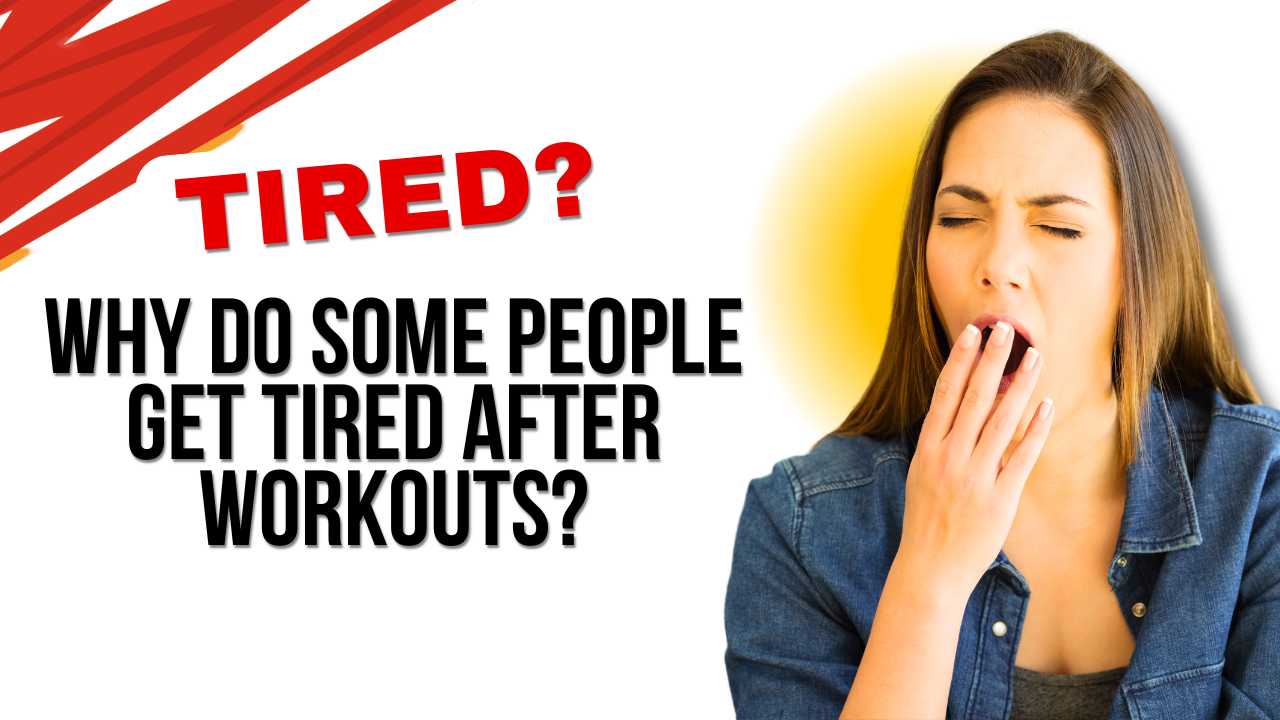Appendix
- Introduction: The Dual Effects of Exercise
- Why Exercise Makes Me Tired: The Science Behind Fatigue
- Exercise and Energy: Why Some People Feel Revitalized
- Factors That Influence How You Feel After Exercise
- How to Balance Fatigue and Energy After Exercise
- Conclusion
Introduction: The Dual Effects of Exercise
For many, a good workout is a source of energy and motivation to power through the day. For others, exercise can leave them feeling drained and in need of rest. If you’ve ever wondered, “Why does exercise make me tired?” you’re not alone. The effects of exercise vary significantly depending on individual factors like fitness level, diet, and even the type of workout. Understanding why these differences occur can help you optimize your fitness routine for maximum benefits.
Why Exercise Makes Me Tired: The Science Behind Fatigue
Feeling tired after exercise is a natural response to physical exertion. Here’s why:
- Energy Depletion:
Exercise uses glycogen (stored carbohydrates) as fuel. Intense workouts can deplete glycogen levels, leading to fatigue. - Muscle Recovery:
Exercise causes microscopic tears in muscle fibers. Your body prioritizes energy for repairing these fibers, which can leave you feeling tired. - Hormonal Response:
During exercise, stress hormones like cortisol are released. High cortisol levels can make some people feel drained post-workout. - Overtraining:
If you’re working out too frequently without enough rest, your body may struggle to recover, leading to chronic fatigue.
Exercise and Energy: Why Some People Feel Revitalized
While fatigue is common, many people feel energized after exercise. This phenomenon can be attributed to:
- Endorphin Release:
Exercise triggers the release of endorphins, chemicals that boost mood and energy. Often referred to as the "runner's high," this feeling can last for hours after a workout. - Improved Circulation:
Physical activity increases blood flow, delivering more oxygen and nutrients to tissues. This can leave you feeling refreshed and alert. - Enhanced Mental Clarity:
Exercise stimulates the release of neurotransmitters like dopamine and serotonin, which improve focus and reduce stress. - Circadian Rhythm Regulation:
Morning workouts can help align your body’s internal clock, leading to sustained energy throughout the day.
Factors That Influence How You Feel After Exercise
Several variables determine whether exercise makes me tired or energized:
- Workout Intensity:
High-intensity workouts are more likely to cause fatigue, while moderate-intensity exercise often provides an energy boost. - Fitness Level:
Beginners may feel more tired due to their body adapting to new demands, while seasoned athletes may feel invigorated. - Nutrition:
Poor pre- or post-workout nutrition can lead to low energy levels. Eating a balanced diet rich in proteins, carbohydrates, and healthy fats supports recovery. - Hydration:
Dehydration is a common cause of post-exercise fatigue. Drinking enough water before, during, and after exercise is crucial. - Sleep Quality:
Poor sleep can amplify feelings of tiredness after exercise, while adequate rest supports energy levels.
How to Balance Fatigue and Energy After Exercise
If you want to feel energized rather than drained after working out, consider these tips:
- Choose the Right Workout:
Match your exercise intensity to your energy levels. For a boost, opt for moderate activities like brisk walking or yoga. - Fuel Your Body:
Eat a pre-workout snack with carbohydrates for quick energy and include protein post-workout for muscle recovery. - Stay Hydrated:
Drink water throughout the day and consider electrolyte-rich drinks after intense workouts. - Prioritize Recovery:
Allow time for rest and recovery between workouts to avoid overtraining. - Listen to Your Body:
If you feel consistently drained, reassess your workout routine and consult a professional, such as a health and wellness coach for personalized advice.
Conclusion
Exercise affects everyone differently, and whether it makes you tired or energized depends on factors like workout intensity, nutrition, hydration, and recovery habits. By understanding your body's responses and adjusting your routine accordingly, you can maximize the benefits of physical activity.
Remember, if you're struggling to find the right balance, seeking guidance from a professional in health and wellness coaching can help you create a routine that works for your unique needs.



No Comments.